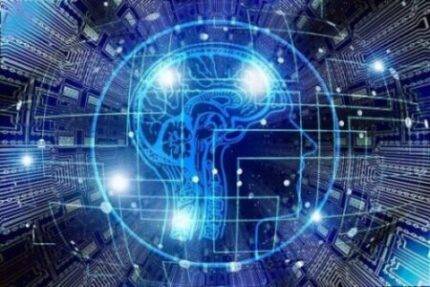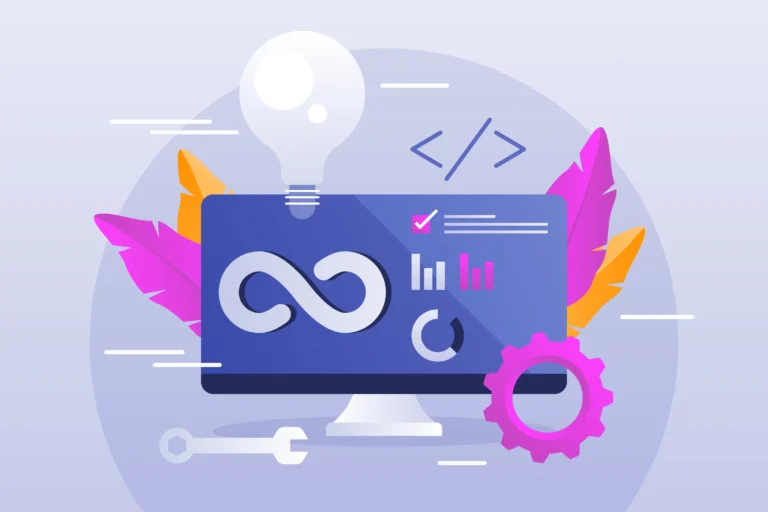Technology around us evolves, while the needs of users are rapidly changing. Today many of us are hung up on personalized content and functional apps. Thus, web developers go beyond their proven solutions and look towards artificial intelligence in mobile app development.
Is AI a New Thing to the World?
What 40 years ago was nothing but fiction is now a part of our life. AI learns to make decisions independently and, for better or worse, do it better than humans in many areas.
The big players in artificial intelligence are, no wonder, software giants like Intel, IBM, Toyota, and Google.
With their investments, they have recently been able to raise huge budgets for researches and integrate innovative trends.
As The Verge reported, Microsoft invested $ 1 billion in the OpenAI research lab, which develops so-called artificial general intelligence (AGI) — a system that can think like a human being.
There is a plethora of AI frameworks and tools for developers that enable them to develop AI applications on their own.
Not that long ago, Sharif Shameem, the founder of debuild.co, even managed to generate code using OpenAI engine.
Which slowly leads us to the next question: how AI is used in mobile applications?
Why AI In Mobile Apps Has Become the New Normal?
To put it simply, AI simplifies many things on the app development journey, be it data analysis, prediction of results, testing, or just building a good user experience.
And there is a good reason for it. The core of your app looks just like many others. If you break it down you will notice that any application has scripts, platform technologies, frameworks, text boxes, etc.
If an AI can analyze one application, it is very likely it will grapple with yours.
That`s why big players invest in automotive testing. This market reached $ 8.5 billion of revenue in 2018, a figure that is about to grow to $ 20 billion over five years.
Many companies today offer their clients AI tools to continuously test their software.
Testing is one of the key tasks to make successful business app, but it can take a very long time. Automation with the help of AI helps to bolster the process to minimize errors in the final version of an application and get to the marketing part faster.
Peter Norvig, a director of research at Google, is also convinced that AI is about solving bugs, not just hiding them.
Avid AI Technologies to Thrive
With virtual digital assistants such as Alexa or Siri, AI has already found its way into our homes. But even with less conspicuous applications such as learning translation and speech recognition programs, AI already provides valuable services.
1. AI In Image Recognition
Here is a great example of how AI algorithms can analyze images and use patterns to summarize results.
It may include web image, face recognition, and search. Image recognition also dominates in manufacturing processes. In the field of quality control, for example, companies rely on AI cameras and machine vision.
2. Chatbots
Chatbots services show a whopping mark of $8 billion by 2022. They give you answers and solutions based on text recognition allowing you to be close to your customers around the clock and around the world.
They have begun to take control of the e-commerce domain and are used as a part of customer support methodology.
3. Voice Search
This technology is widespread in both apps and websites, be it entertainment, health, or restaurant industries. A prime example could be Google Duplex — AI technology used to book appointments with human speech.
The influence of voice assistants also made no little stir across different industries. Users can issue voice commands to search for information or purchase different products.
Consequently, voice search optimization has become very popular and companies are using it to boost sales and conversions.
4. Machine Learning
Grappling with huge amount of data is kind of AI`s schtick.
That`s why many medical application collect and analyze human health data anonymously using artificial intelligence, which, in its turn, opens new horizons in preventive medicine and rare diseases diagnosis.
The same technology is used in newsfeeds in social networks: the machine analyzes which posts you like the most and, based on the information, forms the “Recommendations” section.
5. Multilingual Support of Web Applications Through AI
Many web applications today offer automatic translation of their content. Services such as the Microsoft Translator API or tools such as Google Translate handle the automated translation and can be easily integrated into various applications.
The source and target languages are automatically recognized and texts are also translated into other languages.
AI is a technology that sets the pace for many companies and is evolving rapidly. Today there is no web application without AI in place. It can be assumed that in the future AI algorithms will become a bandwagon for any respectable company.
6. AI in Personalized Recommendations
AI algorithms are increasingly being utilized to provide personalized recommendations to users in various domains such as e-commerce, entertainment, and content streaming platforms. By analyzing user behavior and preferences, AI systems can deliver tailored recommendations, enhancing user experience and driving engagement and sales.
7. AI-Powered Virtual Assistants in Healthcare
Virtual assistants powered by AI technology are revolutionizing the healthcare industry by providing personalized support and assistance to patients and healthcare professionals. These virtual assistants can help patients schedule appointments, access medical information, and receive personalized health recommendations based on their medical history and symptoms, improving access to healthcare services and patient outcomes.
8. AI in Financial Services
AI technologies are reshaping the financial services industry by enabling more efficient and personalized services, including fraud detection, risk assessment, and customer support. AI-powered chatbots and virtual assistants are being deployed by banks and financial institutions to provide 24/7 customer support, streamline banking processes, and enhance the overall customer experience.
9. AI-Driven Predictive Analytics
AI-powered predictive analytics tools are enabling organizations to make data-driven decisions and anticipate future trends and events with greater accuracy. By analyzing large volumes of data and identifying patterns and correlations, these AI systems can help businesses optimize their operations, mitigate risks, and capitalize on emerging opportunities.
10. AI in Autonomous Vehicles
The development of autonomous vehicles is heavily reliant on AI technologies, including machine learning, computer vision, and sensor fusion. AI algorithms enable self-driving cars to perceive and interpret their surroundings, navigate complex environments, and make real-time decisions to ensure safe and efficient transportation. As the technology continues to advance, autonomous vehicles have the potential to revolutionize the automotive industry and transportation systems worldwide.
11. AI in Agriculture
AI technologies are being increasingly applied in agriculture to optimize crop yields, reduce resource consumption, and mitigate environmental impact. AI-powered solutions such as precision agriculture, drone-based monitoring, and predictive analytics help farmers make data-driven decisions and optimize their farming practices, leading to improved productivity and sustainability.
12. Ethical and Responsible AI Development
As AI technologies become more pervasive in society, there is growing recognition of the need for ethical and responsible AI development and deployment. Organizations are increasingly focusing on issues such as bias and fairness, transparency, accountability, and data privacy to ensure that AI systems are developed and used in ways that align with societal values and norms.




